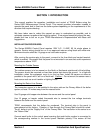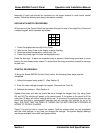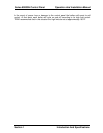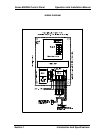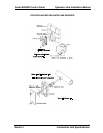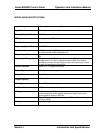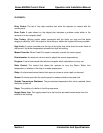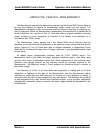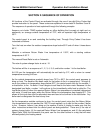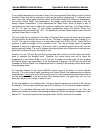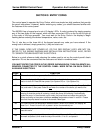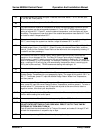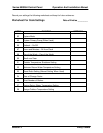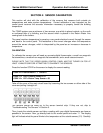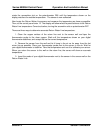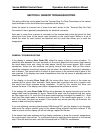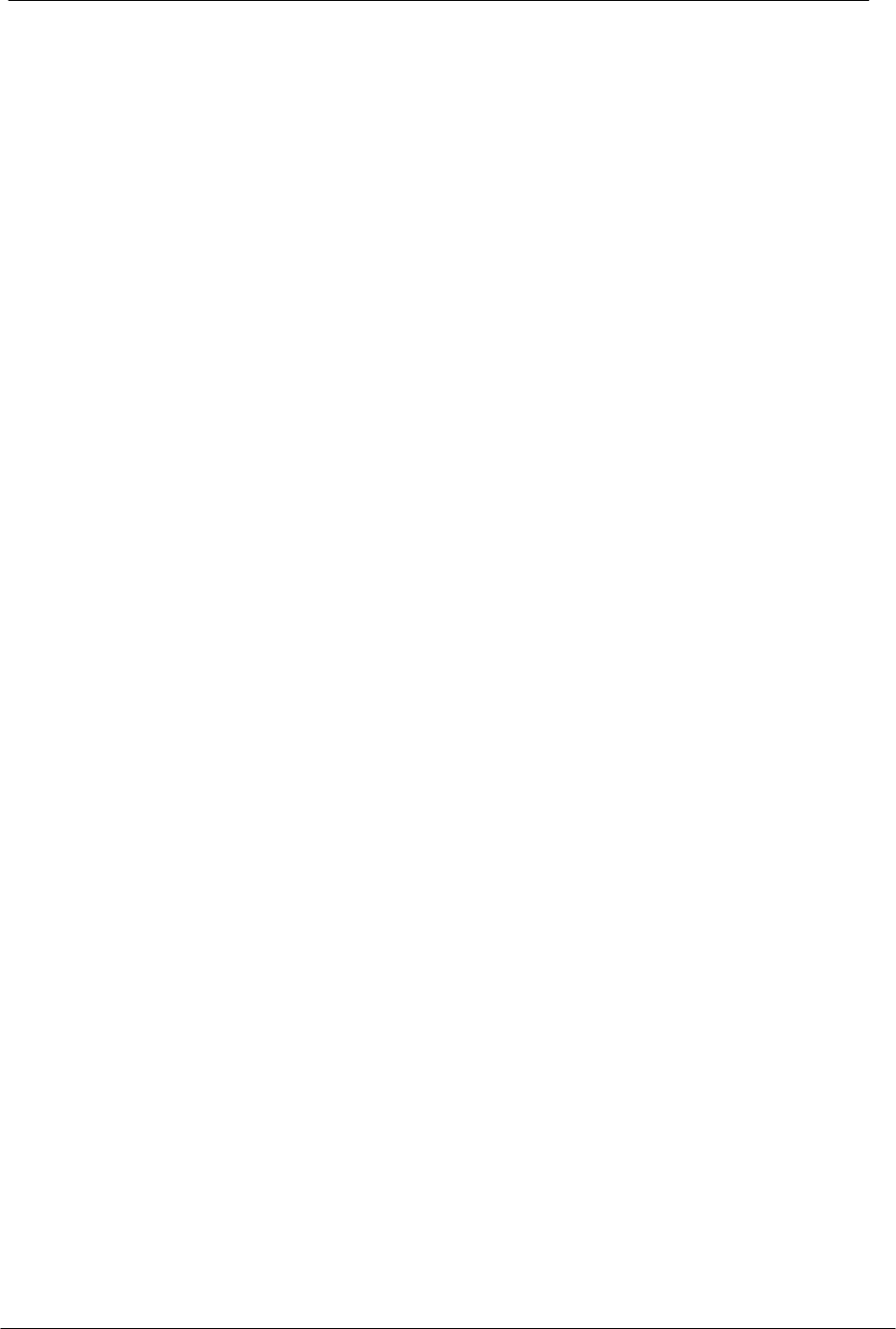
Series 8900SH Control Panel Operation And Installation Manual
Section 2 Sequence of Operations
SECTION 2: SEQUENCE OF OPERATION
All functions of the Control Panel are activated through the use of two-digit Entry Codes that
provide instruction to the panel. These codes are explained in more detail in Sections 3 and 8.
The sequence of operation is best explained through the following example:
Assume a six boiler TRIAD system heating an office building that is empty at night and on
weekends, an average outside temperature of 70°F, with an expected night temperature of
35°F.
The control panel is on and controling the building heat. Through Entry Codes it has been
instructed as follows:
Turn the heat on when the outdoor temperature drops below 60°F and off when it rises above
60° F.
Maintain a minimum Return Water Line temperature of 100°F, with a starting outdoor
temperature of 60° F.
The manual Reset Ratio is set on Automatic.
The rate of system change factor is set at .10.
The boilers will fire in a sequence of 1, 2, 3, 4, 5, 6, and boiler number 1 is the lead boiler.
At 6:00 pm the temperature will automatically be set back by 5°F, with a return to normal
temperature occuring 6:00 am.
As the outside temperature gradually drops from 70°F to 60°F, the control panel prepares to
bring on heat. The decision has been made for the boilers to fire in a sequence of 1 through 6,
so as the outdoor air temperature drops below 60°F, the control panel calls for the number 1,
or lead boiler, to fire. As boiler 1 fires it begins to add heat to the return main. Because it is the
designated lead boiler, number 1 will continue to fire intermittently while heat is called for. The
lead boiler shuts off when the required Return Water Line temperature is reached (determined
with code 14) and fires again when the Return Water Line temperature has dropped 2°F. This
allows all the cycle time and the attendant wear and tear to be confined to the lead boiler. Any
boiler can be designated the lead at any time.
As the temperature outside continues to drop, the control panel notes that the Return Water
Line temperature has not reached the 100°F it must maintain, so it calls for the number 2 boiler
to fire. However, before it can bring on the number 2 boiler it checks to make sure that the
other instructions entered into the control panel are being satisfied. These are (i) the rate of
system change factor, (ii) the required Return Water Line temperature, and (iii) the calculated
Reset Ratio. With this information the panel can fire the other boilers in a way that will most
efficiently satisfy the heating needs.



